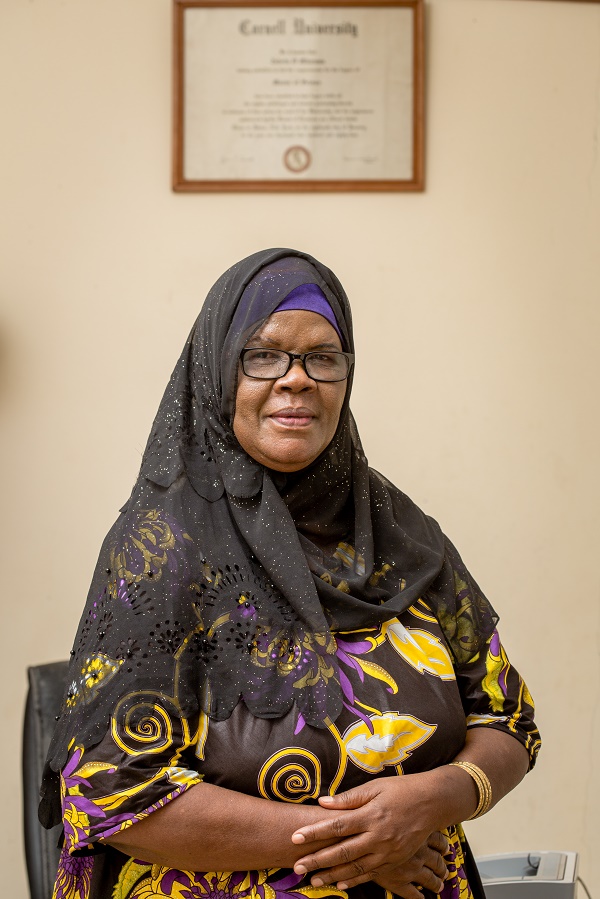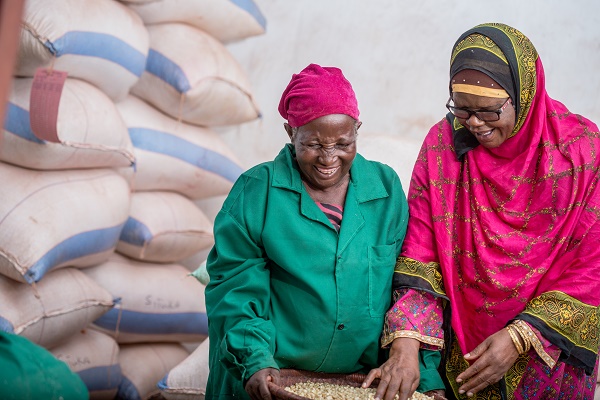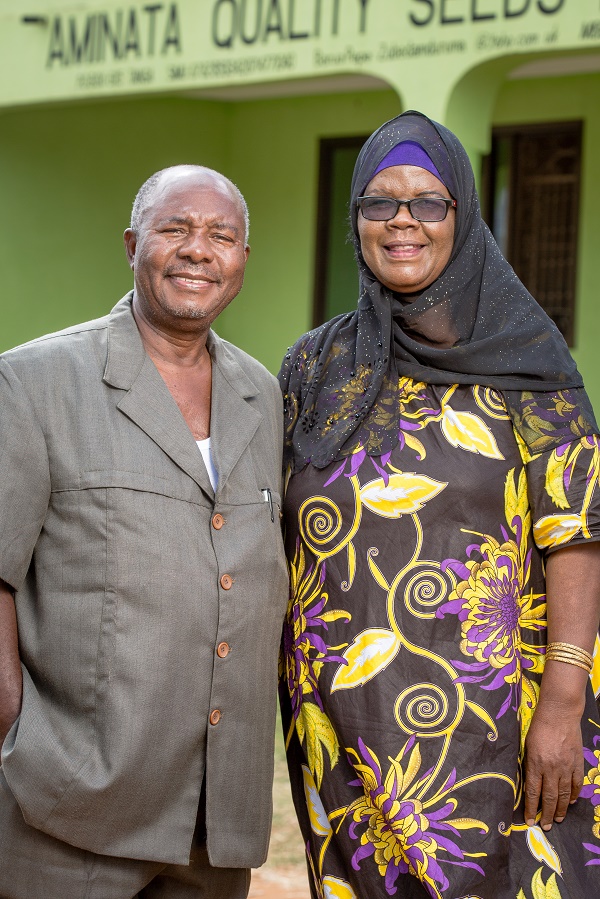
Women in seed systems in Africa: Zubeda Mduruma
By: Rahma I Adam, Florence Sipalla, Pauline Muindi and Vongai Kandiwa
The maize seed sector in eastern and southern Africa is male-dominated. Most seed companies operating in the region are owned and run by men. Often access to land and financial capital can be a constraint for women who are keen on investing in agriculture. However, there are women working in this sector, breaking social barriers, making a contribution to improving household nutrition and livelihoods by providing jobs and improved seed varieties.
The gender team within the International Maize and Wheat Improvement Center (CIMMYT) Socioeconomics Program interviewed 9 women involved in the seed business in this region as part of a collection of stories that will be published as a book this May. In honor of International Women’s Day, held March 8, 2019, the CGIAR Research Program on Maize (MAIZE) and CIMMYT would like to share some of their stories to recognize these women—and many others like them—and highlight the important work that women do in seed systems in Africa.
This is Zubeda Omari Mduruma, and this is her story:

Dr. Zubeda Mduruma, 65, is a plant breeder. Raised by farmers, Zubeda took to agriculture from a young age as she enjoyed helping her parents in the farm. After high school, Zubeda obtained a BSc in Agriculture then joined Tanzania’s national agriculture research system, working at Ilonga research station. She then pursued her MSc in Plant Breeding and Biometry from Cornell University in the U.S. and obtained a PhD in Plant Breeding at Sokoine University of Agriculture in Tanzania, while working and raising her family. “I wanted to be in research, so I could breed materials which would be superior than what farmers were using, because they were getting very low yields,” says Zubeda. In the 22 years she was at Ilonga, Zubeda was able to release 15 varieties.
Aminata Quality Seeds is a family business that was registered in 2008, owned by Zubeda, her husband and their four daughters. Aminata entered the seed market as an out-grower, producing seed for local companies for two years. The company started its own seed production in 2010, and the following year it was marketing improved varieties. “I decided to start a company along the Coast and impart my knowledge on improved technologies, so farmers can get quality crops for increased incomes,” says Zubeda.
When Aminata started seed production, it was using maize varieties from the public research stations. With germplasm and small grants from CIMMYT, the company was able to develop its breeding program. “In 2013, I released three varieties; two hybrids and one open-pollinated variety (OPV) which was Quality Protein Maize,” Zubeda says with pride. In 2015, the company released two other varieties, one OPV and one hybrid.

Aminata prides itself for its ability to provide farmers with good quality seed. The company is keen to respond to farmers’ needs and involve them in their breeding process through participatory variety selection (PVS). Much as farmers are interested in high yields, they prioritize seeds that can withstand climatic and disease challenges. “Farmers want something that can be tolerant to the existing problems in the field,” explains Zubeda. Drought is common in Tanga, Tanzania, where the seed company is based. Aminata obtained CIMMYT germplasm with disease and drought-tolerance. Zubeda ensures that Aminata hybrid and OPV seeds have good grain quality, are drought-tolerant and resistant to the common leaf diseases in the area such as Leaf Blight, Gray Leaf Spot and Leaf Rust.
In the mid-altitude zones, maize lethal necrosis (MLN) disease was the most devastating in the past three years. CIMMYT researchers have been conducting research at the MLN Screening Facility in Naivasha, Kenya. Three varieties of Aminata Seeds were tested in Naivasha and found to have medium-tolerance to MLN. The company has also grappled with the fall armyworm. Thanks to training on integrated pest management organized by CIMMYT and Alliance for a Green Revolution (AGRA), Aminata learned what insecticides to spray and when to do so.
“CIMMYT has been very helpful in training our staff. When you are a young company, your people don’t know much about the seed system,” says Zubeda. They have also received some financial support for irrigation and cold storage facilities, in addition to the capital support they have received through the AGRA Challenge Fund which has enabled them to buy new tractors and a new processing line.

Zubeda is a keen mentor. She is training her daughter Fatuma Mpukwini, an assistant breeder and warehouse supervisor. A trained teacher, Fatuma quit her government job to work in the seed business. She has attended CIMMYT-run training in breeding, production, store management, disease diagnosis and pest-management.
To reach farmers in remote villages, Aminata engages in direct sales, working with small seed stockists and lead farmers. Each Aminata seed pack comes with advice on use and handling. The sales team, which comprises men and women, sell at markets and travel in the region. When selecting farmers, the company makes a deliberate effort to ensure some women and youth are recruited to host demonstration plots. “The company feels that the youth are leaving their villages to go look for jobs. However, growing seed or crops [here] provides self-employment,” she asserts. During sensitization meetings, the company goes back to the community and asks them to nominate a person who will sell seed to them. They select an extension worker, a group leader or an influential woman in the community. The company is also using radio adverts to raise awareness on the seeds they are using and are planning on using video adverts in public buses.
Farmers are free to call Aminata to make enquiries on diseases they notice in their fields. The breeder visits affected farms and works with extension workers who send her pictures of far-flung farms by WhatsApp, and she advises on how to manage the problem.
Zubeda encourages more women to venture into the seed business. “To do any business, you have to have guts. It is not the money; it is the interest. When you have the interest, you will always look for ways on how to start your seed business.”
At the beginning of her career, Zubeda understudied a CIMMYT breeder. After working for the government in Tanzania, Zubeda joined CIMMYT in Ethiopia, working as a maize breeder until she retired from CIMMYT. She credits her work experience with the organization for making her a good breeder, who values her work.
Africa, International Womens Day, IWD 2019, Maize, maize seed, seed companies, seed systems, Sub-Saharan Africa, Tanzania
